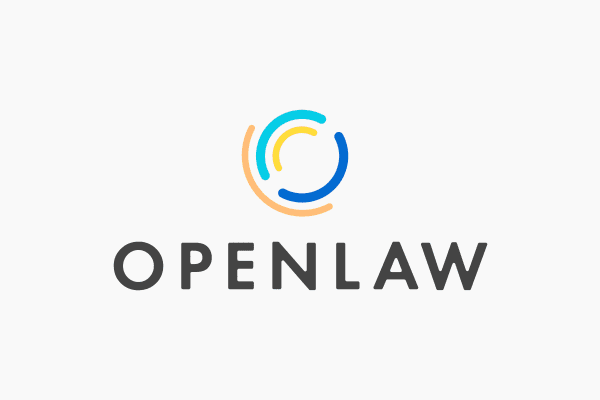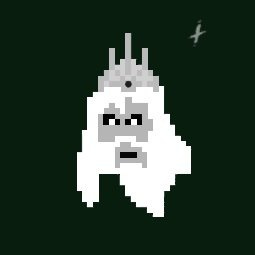Primer: Aaron Wright is a galaxy brain OG in the space. Learn about his legal and tech background and his role in launching Ethereum and OpenLaw. Aaron is also an active member in many DAOs (The LAO, Flamingo DAO, Neptune DAO, etc.). Get his firsthand experience with DAOs here.
Origins
Professor at Cardozo Law school in New York (background in law and technology)
Played a role in the launch of Ethereum
Published a book titled Blockchain and the Law: The Rule of Code
Sold a company to Wikia, the for-profit arm of Wikipedia
Behind many of the major DAOs (e.g. The LAO, Flamingo DAO, Neptune DAO, etc.)
Interest In Tech
Always been fascinated with tech
His dad was in scientific research and was an early user of the internet
After college, hoping to work for an internet company. Could not do so as it was after the Dotcom crash
Decided to go to law school as he likes to write
"So I grew up, just completely seeing my family online, like my dad would be sitting there late at night, like messaging people on a black screen, green font, you know, over the internet. I was fortunate enough to kind of see the whole Web1 movement in like my formative years." - Aaron Wright
With a background in law and a deep interest in tech, blockchain caught his attention
Role In Launching Ethereum
Really interested in Bitcoin. Started in 2011
Thought about a protocol for law or rules. During that time, Ethereum came to his attention
Paid for a conference ticket and got connected to Joe Lubin, the co-founder of Ethereum. Figured that he could help out on the legal side
Helped out with Ethereum both pre-launch and post-launch
Initial Attraction To Crypto
Worked with law firms who had to clean up the financial mess from 2008
Was a horrifying and eye-opening experience. Saw the plumbing of the existing financial system
Found Bitcoin interesting from a tech perspective and how it is advocating for a new system
Ethereum was an extension of Bitcoin
Was an IP lawyer working in the music industry. Fascinated with the intersection of IP and blockchain
Ideated on use cases early on. Involved in music and the payment of real-time royalty income to artists
Why Do You Think That NFTs Have Caught Mainstream Attention?
NFTs are constantly exceeding expectations when it comes to consumer adoption, artist adoption, enterprise adoption, etc.
Trend accelerated by COVID. Creators lost their jobs and found crypto/NFTs as an alternative income source
The infrastructure is there to support it as well (SuperRare, OpenSea, Nifty Gateway, etc.)
On DAOs
Broad concept that is floating around the Bitcoin ecosystem in 2013
Dan Larimer, founder of the EOS blockchain, came up with the notion of a Decentralized Autonomous Corporation
Conversations back then revolved around colouring Bitcoin in some way to use it to represent other assets like stock in a company
"So it [Vitalik and others] took this Decentralized Autonomous Corporation and then generalized it into, you know, a Decentralized Autonomous Organization, because I think people realize it didn't need to be in the shape and form of a corporation, like a hierarchical structure could be flatter." - Aaron Wright
Vitalik and others generalized that concept into a DAO in Ethereum
Easiest way to think of it as an online group/community with a bank account and a whole bunch of rules around it
There are other types of DAO too (e.g. management of open-source tech and stakeholders direct how the tech is going to develop over time)
How Are DAOs Able To Cut Through The Noise And Get To The Signal
Same like online groups. People that join are aligned along a common interest
"And it's that combination of people that have a similar interest, with some sort of, kind of unifying structure and monetary incentives that I think just makes it [DAOs] work really, really well." - Aaron Wright
With everyone aligned, it is within human nature to acquire information and bring it back to the group
Information brought back is assessed by the community and serves as a point of coordination
What Do DAOs Do That Regular Companies Do Poorly?
DAOs do well in information collection and information sorting
Since they are flatter, information can flow in more emergent ways
In regular companies, the loudest person tends to win. In DAOs, everyone has equal footing and good ideas come to light
What Do Regular Companies Do Better Than DAOs?
Corporations scale very well
Over time, DAOs will get to the same point as governance issues get sorted out
Future Landscape - Corporations Or DAOs?
Current landscape has plenty of corporations and LLCs
LLCs are slowly eating up corporations
Corporations are increasingly like a narrow structure that's limited towards companies that are either international or have some tax considerations (e.g. going public, want to raise venture capital)
Personally think that crypto is the tip of the spear for tech. Closest thing to an entirely digital native, remote-first, highly disparate, and highly decentralized environment
Ideal Voting Mechanism For DAOs
Don't have a full answer right now
We have the tools to experiment
Traditional enterprises use quorum-based decision-making. Decisions are made when certain thresholds are reached
This rough consensus approach seems to work well for The LAO, Flamingo DAO, and Neptune DAO
Other projects are experimenting as well
Jack du Rose, who runs Colony, uses a veto model. By default, the answer is yes and people should just be able to veto an action
Quadratic voting is experimented on by Gitcoin and many projects
Conviction voting involves staking something to show how much you actually care
OpenLaw
Contracts are part of human civilizations
Today, there are certain things that contracts do that are not accounted for in smart contracts:
Managing risks
Calibrating expectations
Events that cannot be rendered down into some sort of data object
Thought of how Ricardian contracts would help solve the problem
A Ricardian contract is a digital agreement "that defines the terms and conditions of an interaction between two or more peers, that is cryptographically signed and verified. Importantly it is both human and machine-readable and digitally signed."OpenLaw aspires to be a Ricardian contracting system that enables users to take a legal agreement and digitize it such that a computer can understand it and, at the same time, triggers smart contracts when it is signed
OpenLaw can be used to highlight the risks that people are getting into when they join DAOs
The LAO
Knew that there was a lot of interest for DAOs
Saw a project called MolochDAO. Decided to extend and generalize it and put together new data like structures
Started The LAO, where the idea was to back projects and test the assumption as to whether a community can make fruitful decisions without members knowing one another
Began to discuss collecting NFTs inside The LAO
Decided to set up Flamingo DAO that would be focused on collecting NFTs
Decided to set up Neptune DAO that is DeFi-focused
"So The LAO is kind of like the first experiment and like an incubation center." - Aaron Wright
The LAO also incubated:
Museo, a NFT museum
Dark Horse DAO, play-to-earn DAO focused on Zed Run
Alien DAO, for purchases of alien crypto punks
Contributing To DAOs
Happens organically. People have different interests and will contribute in areas where their interest lies
Example:
Flamingo DAO community loves generative art
The LAO and Flamingo DAO provided support
Collected tons of art blocks
Flamingo DAO
Started in October 2020
Executed on the strategies they came up with:
New class of emergent digital artists (e.g. ix shells)
NFTs (e.g. CryptoPunks, Autoglyphs, generative NFTs, and other early NFTs)
Metaverse (e.g. land/parcels and other items in the metaverse)
Sports collectibles (e.g. NBA Topshot)
Generative Art NFTs As The First Asset Into DeFi
For works that are more networked, it is possible to get an approximation of pricing
Pricing information can then be used in DeFi (e.g. use as collateral, making loans against it, etc.)
"There's a whole bunch of financialization of the traditional art market, it's likely going to happen with these like networked entities first, and that in large part covers generative art." - Aaron Wright
Do People Specialize?
Mix of both
There are generalists that are into a whole bunch of different things
There are specialists that are super into a particular project
Neptune DAO
When Compound announced their governance token, The LAO geeked out on it
DeFi has a different risk profile than venture capital-style investing:
Need to claim/stake
Risk of rug pulling
More complex calculation that needs to be done
Had an idea to pool capital and be supportive of projects that require liquidity at launch. Resulted in the formation of Neptune DAO
Token For Neptune DAO?
No native token yet
There's conversations about how to make something like that happen
Regulatory Issues Around Token Issuance
Interest in DAOs are not securities; more akin to partnership interests
DAOs have a mechanism called Rage Quitting where users can walk away with their money
People have more control over their assets in a DAO than compared to a VC fund or a Hedge fund
Museo
Launched Museo to be a permanent collection for art
The artists themselves are doing the curation of what goes into Museo
Artist donate to Museo —> Existing members accept it —> Artist gets to decide what gets accepted next
"I think, again, like going at 50 years, I can't imagine that we're not going to see some NFT-native museum that sits alongside or is as reputable as something like MoMA or MET or some of these other amazing institutions that we see across the globe." - Aaron Wright
What Is The Metaverse
Metaverse is the context for the next generation
Some of the virtual worlds (e.g. Decentraland, Somnium Space, Cryptovoxels) could end up becoming the dominant virtual world
Foresees that NFT-based games will coalesce together with the metaverse
Favourite Video Game
Civilization. Played 1 through 5 very heavily
Had to uninstall it because he got too into it
Single Favourite NFT
Huge XCOPY fan
The aesthetic appeals to him
Theme is a little dark
Most Controversial Thought On NFTs
NFTs are actually still discounted right now
"So I could see a world in the future where financial products like DeFi is really just servicing a more creative economy, where people are trading art, ideas, memes, culture." - Aaron Wright
If You Could Improve One Thing In The Crypto Space
Regulation. A lot of the rules don't firmly work in the crypto space
World Of DAOs In 3 Years
Exponential growth in DAOs
Building out the tech tooling for DAOs
Might see DAOs become massive household names over the long-term
All information presented above is for educational purposes only and should not be taken as investment advice. Summaries are prepared by The Reading Ape. While reasonable efforts are made to provide accurate content, any errors in interpreting and summarizing the source material are ours alone. We disclaim any liability associated with the use of our content.








